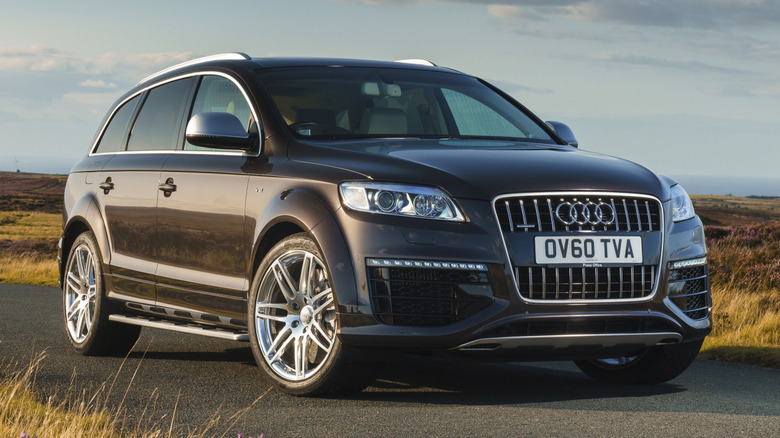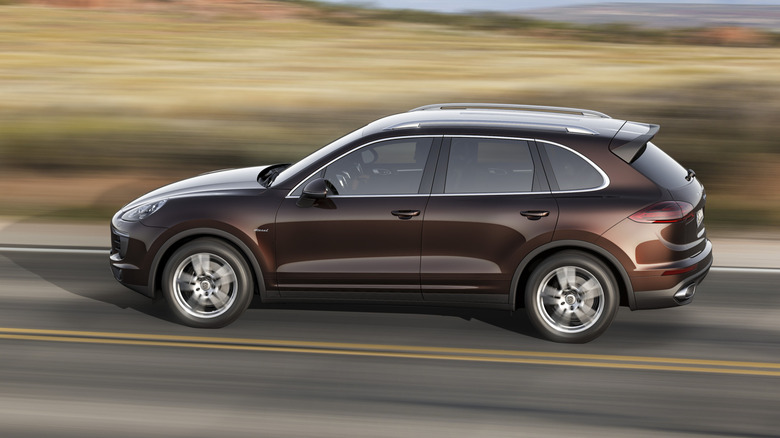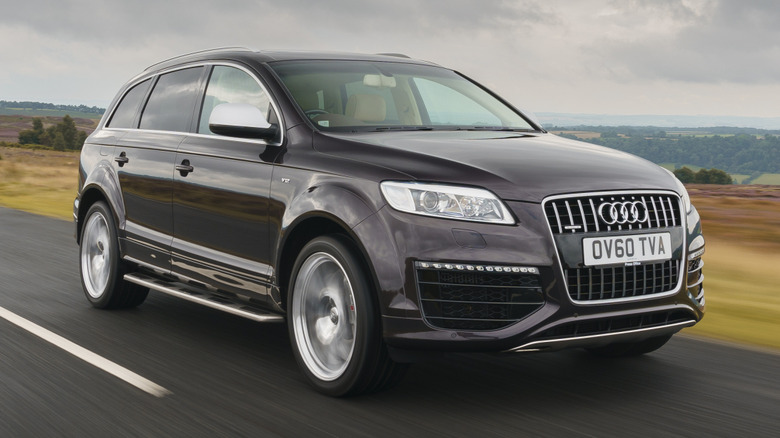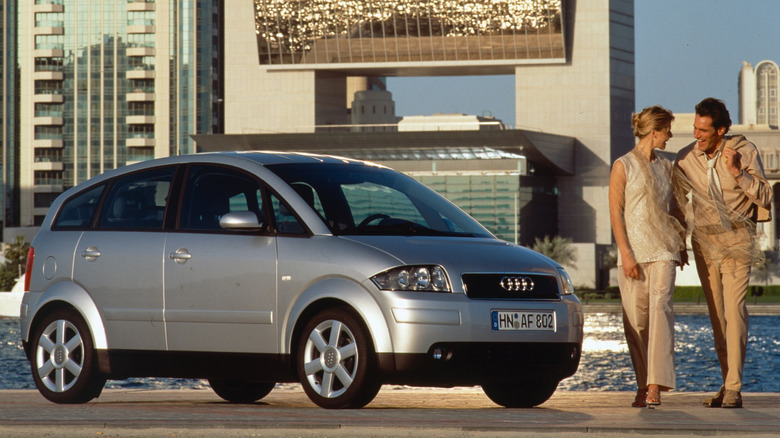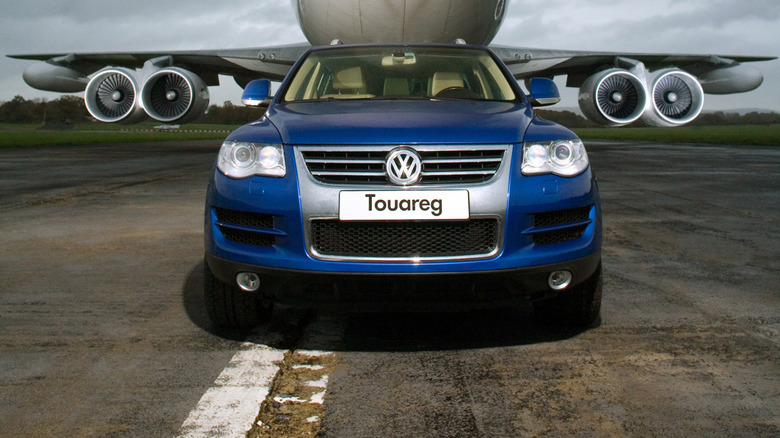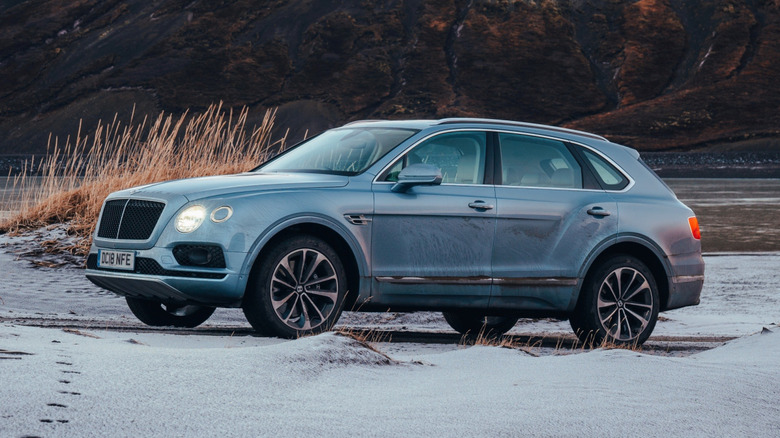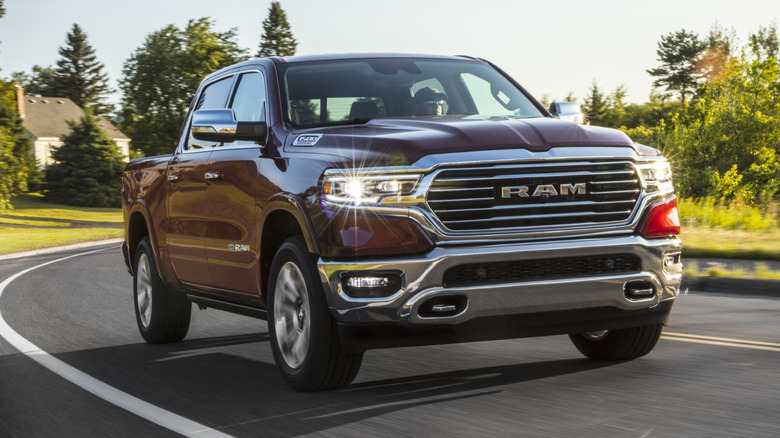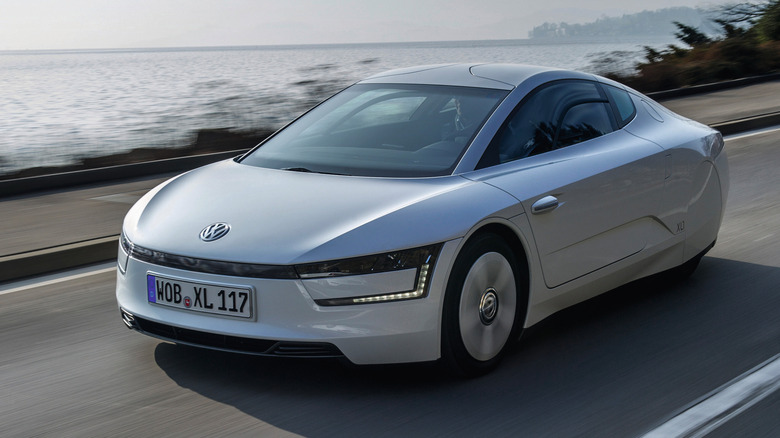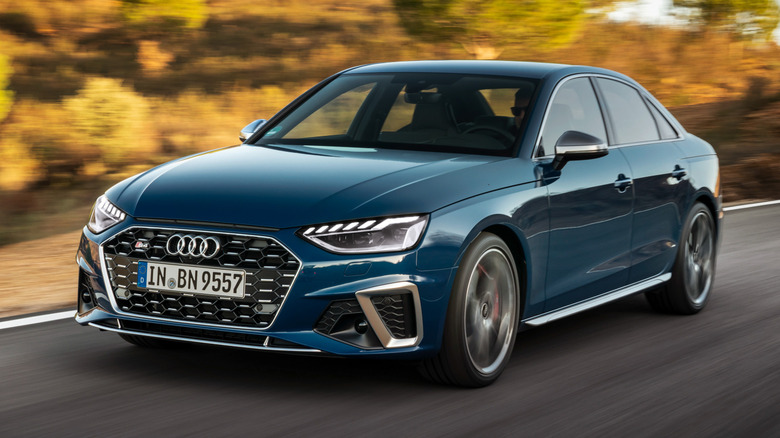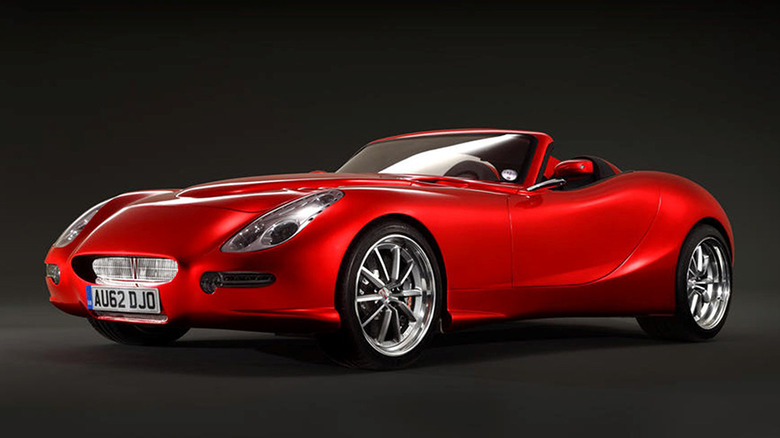10 Discontinued Diesels We Wish Were Still Around
While American buyers never adopted diesel cars en masse like their European counterparts, there have still been a few diesel models that were offered for sale in the U.S. over the decades. Still, many of the best diesel cars remained out of reach for stateside buyers, or were only very briefly offered before being discontinued. Even in Europe, the popularity of diesel has waned significantly in recent years, with ACEA data showing diesel cars' market share dropping from 31.6% to 13.6% between 2019 and 2023.
This popularity drop in what was traditionally the diesel car's market stronghold, combined with looming combustion engine bans in the EU and UK, leaves the picture looking pretty bleak for diesel cars. It now seems very unlikely that they'll ever make a significant comeback, but if one day they somehow did, we think these 10 models from right across the automotive spectrum make good candidates for resurrection.
Porsche Cayenne
Porsche has learned the hard way that not everyone is ready to move to EVs just yet. In 2024, it walked back its plans to switch to producing mostly electric vehicles, citing a lack of consumer demand as the main reason. In 2025, it announced that it was considering the idea of building a new gas-powered SUV, which could hit the market later in the decade. Even with its change of course, the brand still has to worry about average emissions levels in markets where such regulations apply, and as an alternative to gas-hybrid power, it could look to diesels as a way to increase the average mpg ratings of its fleet.
Between 2009 and 2017, Porsche built a diesel version of its popular Cayenne SUV, but it was axed in the wake of its parent company VW Group's Dieselgate scandal. Unfortunately, the diesel Cayenne was one of many VW Group models fitted with an emissions defeat device, which caused a significant loss of confidence among buyers. With the general declining demand for diesels, it seems unlikely that it would be able to replicate the sales it enjoyed at its peak, but it would at least provide another option for buyers who weren't sold on the benefits of electrification.
Audi Q7 V12 TDI
Many of VW Group's best diesel SUVs were good because they were sensible and economical while retaining power. The Audi Q7 V12 TDI managed to be the last of those things, but it completely forgot about the other parts. It's the only diesel V12 engine ever put into series production, and there's a good reason for that. Rather than starting life as a road car engine, the V12 under the hood of the Q7 was originally designed as a racing engine. It was built for Audi's R10 endurance race car, and proved very effective. It was so effective, in fact, that it won the 24 Hours of Le Mans three times consecutively between 2006 and 2008.
Originally, Audi bosses reportedly planned to build a diesel version of the R8 supercar to bridge the gap between the brand's racing efforts and its road cars. However, that proved too expensive, and so engineers came up with the idea of putting it in the Q7 instead. The result was a luxurious, family-hauling SUV with 493 horsepower and 738 lb-ft of torque. It was a completely unique and hilariously overpowered car, but also an extremely expensive one. Its price tag when new eclipsed $100,000, and as a result, it sold terribly. However, buyers today have no problem shelling out significantly more cash for a top-spec RS Q8 or one of the many other ultra-high-end SUVs out there, so why not bring back the most outlandish diesel family hauler ever made?
Audi A2
Its unconventional looks are enough to make it one of the strangest Audis ever built, but the A2 was arguably also one of the most innovative. It was available with both gas and diesel engines, although it was the diesels that was the clear winner for efficiency. The standard diesel achieved around 70 mpg, while Audi's special edition A2 3L could hit 94 mpg. Those are groundbreaking figures for a car made 25 years ago, and remain far ahead of the most efficient cars on sale in the U.S. today. The A2 achieved that frugality without electrification, relying instead on the modest fuel usage of its three-cylinder engine and the car's highly aerodynamic shape.
It was far from the fastest car on the market, with a 0-60 mph time of over 10 seconds. However, once it did get up to speed, the A2 could cruise on the highway without trouble. Thanks to its unique shape, it was roomier inside than its compact proportions would suggest, too. Despite its frugality, the A2's looks and its high starting price meant that it was never a sales success.
With today's regulatory focus on emissions levels, an ultra-efficient small car like the A2 seems like the ideal way to bring down emissions averages without having to convince more buyers to switch to electrified vehicles. However, such an unusual design would likely be just as much of a sticking point today as it was at its launch.
VW Touareg V10 TDI
It might not be quite as ridiculous as Audi's diesel V12 engine, but the 5.0-liter V10 stuffed under the hood of the Touareg (and later the Phaeton) comes pretty close. It was crowned the Engine of the Year by global automotive journalists in 2003, and boasted 309 horsepower and 553 lb-ft of torque. In a famous stunt orchestrated by the British TV show "Fifth Gear," a V10-equipped diesel Touareg managed to tow a Boeing 747, albeit after being loaded up with sandbags to aid traction. When it wasn't pulling planes, the Touareg V10 TDI could accelerate from 0-62 mph in 7.8 seconds, and reach a top speed of 140 mph. Plus, it still hit an EU-estimated average mpg rating of 23.2 mpg.
Of course, there were downsides. The biggest one was the diesel Touareg's price, equivalent to a full-size Mercedes-Benz SUV. The difference was that the Touareg had a VW badge rather than the prestigious three-pointed star on the front, and from the outside, it didn't look all that different from the run-of-the-mill Touareg either. That was enough to keep sales low throughout its production life, and the few examples that remain today sell for a fraction of their original price.
Bentley Bentayga
The short-lived diesel Bentley Bentayga offered similar levels of power and refinement to its W12-powered counterpart, but with greater fuel economy and more torque. It was eventually discontinued and replaced by a hybrid gas powertrain option, with the brand noting that at the time of its axing in Europe, there were zero orders on the waiting list for one. Clearly, it didn't sell as well as the brand had hoped.
This was likely more down to image issues than any issue with the powertrain itself. The diesel V8 engine that the Bentayga used was sourced from Audi, which also offered it in the cheaper SQ7. The other engine option for the Bentayga, the W12, was exclusive to Bentley, although it was also considerably pricier. That didn't seem to put off buyers, who were already shelling out six figures on the car, and so didn't think twice about paying a further premium for the extra cylinders. That's a shame, as there was little to dislike about the diesel Bentayga, even if it didn't carry the same purebred image as its W12 sibling.
Volvo V90
Volvo seems to still be toying with the idea of whether or not to discontinue its V90 estate, but the diesel version is long gone. It was a very sensible (some would say boring) car, but for long-distance commuters looking to save at the fuel pump without compromising on power or comfort, it remained appealing right until its demise. Rather than quietly discontinuing its diesel lineup, Volvo announced with some fanfare in 2024 that it had built its last diesel engine and was focusing on electrification.
According to the brand, it was simply the financially sensible thing to do, as European buyers were no longer buying diesels and had previously been the brand's largest diesel market. Still, in the same press release that announced the end of its diesel range, it highlighted its previous diesel plug-in hybrid V60, which could drive more than 600 miles without needing to refuel. A V90 diesel plug-in hybrid would surely offer even more range, plus the superior efficiency of a diesel engine, but Volvo opted to make its current Euro-spec V90 plug-in hybrid gas-powered instead.
Ram 1500 EcoDiesel
Ram still offers a Cummins turbodiesel option for its heavy-duty trucks, but not for the 1500. The Ram 1500 EcoDiesel was discontinued after 2023, with the Ramcharger plug-in hybrid eventually slated to replace it in the 1500 lineup. The 3.0-liter EcoDiesel engine went through its fair share of troubles during its time on sale, with its early model years suffering from reliability issues and discrepancies between its official and real-world mpg figures resulting in costly fines for its maker.
However, the efficiency and low-end grunt of the EcoDiesel kept it an appealing alternative to gas, and arguably made more sense for trailer-pulling applications than a plug-in hybrid EV. It's no secret that EVs can suffer diminished range when towing heavier trailers, and charging infrastructure across the U.S. can still be patchy. Continuing to produce a diesel for towing and long-distance journeys alongside the hybrid truck would arguably have made sense, but Stellantis' keenness to accelerate its electrification drive ensured that didn't happen.
VW XL1
The Dieselgate scandal might have irreversibly tarnished its reputation for building diesel engines, but that doesn't take away from the fact that VW was still very good at it. Nowhere is that more evident than in the case of the VW XL1, which is not only one of the rarest Volkswagens ever made but also the most efficient diesel hybrid ever to reach production. It recorded an official efficiency rating of 0.9 liters per 100 kilometers, which in American terms is a staggering 261 mpg. A run of 200 examples of the XL1 were built for public purchase, although none were officially sold in America.
The XL1 might have been frugal, but it was also slow, with a combined 69 horsepower on tap. That was fine for driving around cities or keeping a steady speed on empty highways, with its 12-second 0-60 mph time, it wasn't designed for navigating high-speed traffic. The original XL1 was essentially a prototype that spawned a small production run, but if it had continued to be developed, its two-cylinder diesel powertrain might have eventually found use in a wider variety of small, city-oriented VW cars. Unfortunately, Dieselgate came along, and VW had to quickly pivot away from diesel development.
Audi S4 TDI
Diesels aren't generally thought of as being fun to drive cars; instead, they are more about saving fuel. However, the Audi S4 TDI proved that buyers could have the best of both worlds. It remained in production until 2024, when Audi's confusing switch-up of its naming system saw the previous S4 become the S5 and lose its diesel engine in the process. Before it was axed, the diesel S4 offered around 350 horsepower and 516 lb-ft of torque, which was enough for a 0-62 mph time of 4.8 seconds. Its top speed, like many German performance cars, was limited to 155 mph.
Its performance didn't compromise its efficiency, with the diesel S4 reportedly able to achieve 40 mpg during everyday driving. It didn't compromise its practicality either, with the S4 still sporting the same general dimensions as the more everyday A4 sedan. Its discontinuation can be attributed to the general drop in demand for diesel cars in Europe, rather than any shortcoming of the car itself.
Trident Iceni
All the other cars here were built by major manufacturers and reached mass production, but the Trident Iceni doesn't tick either box. It was developed by a small company in the UK, in the same vein as many unique sports cars — there's the Ariel Atom, Noble M600, and BAC Mono, just to name a few. Trident was no doubt aiming to join this elite club of low-volume specials, but took a very different approach. It designed a diesel-powered sports grand tourer which could reportedly travel more than 2,000 miles on a tank yet still reach a top speed of 190 mph.
The company has been around for two decades now, and is still active today, although it no longer offers its pioneering diesel. Its website states that the car is still available to purchase, but since "diesel engines are falling out of favor the power plant has now been changed" to a conventional gas-powered V6. With major manufacturers turning away from diesel and even plucky startups like Trident admitting defeat, it seems the idea of a diesel sports car with the power to match the best grand tourers will remain just that, only ever an idea.
